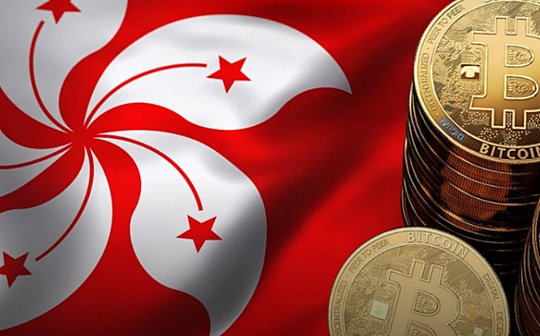Singapore "discards" Web3 encryption finally becomes the card table for big institutions

Reprinted from jinse
06/06/2025·13DJessy, Golden Finance
Is Singapore changing?
On June 30, 2025, the Monetary Authority of Singapore (MAS) will formally implement new regulations on digital token service providers (DTSPs). The bill clearly stipulates that institutions and individuals that provide FSM legally defined digital token services in Singapore must be licensed, otherwise it will involve illegal activities.
The issuance of the document seems to indicate a change in the Singapore government's attitude towards Web3. In the early years, the Singapore government actively embraced Web3. After the FTX crash and the Luna collapse, it began to emphasize finding a balance between innovation and risk control, and classified supervision of the crypto industry by formulating regulations and issuing guidelines. At this stage, supervision began to tighten, and some crypto companies began to move from Singapore to Hong Kong or Dubai where supervision was looser. And by June 30, the implementation of the new regulations seemed to be the era of stricter supervision.
And the sky did not change suddenly, just like the execution of this card deal guide, it did not come out of thin air. MAS has passed the Payment Services Act since 2020 to include digital payment tokens in supervision, and companies that need to provide local crypto exchange and other services to apply for licenses. Since then, MAS realizes that there is still room for regulatory arbitrage: some crypto companies set up strongholds in Singapore but only serve overseas customers to evade local license requirements. To plug this loophole and comply with the standards of the Financial Action Task Force (FATF), the Financial Services and Markets Act was adopted in April 2022, with Part 9 specifically introducing an on-the-size licensing system for digital token service providers. After the law was passed, MAS did not immediately strictly enforce it. However, the bill requires all Singapore-registered companies (regardless of whether the person serving is in Singapore) to apply for a DTSP license, which ends the exemption period of "no license required to serve overseas customers".
The official implementation of the "Guidelines for Licensing for Digital Token Service Providers" is just that the regulatory hammer is finally hammered to death, and the major institutions stayed.
Whether it is an individual or an institution, you need to be a licensed job
The Monetary Authority of Singapore (MAS) clearly stipulates that the new DTSP regulations will be officially implemented from June 30, 2025 and there will be no buffer period. All unlicensed digital token service providers must stop providing services to overseas customers by this date or they will be deemed illegal and may face fines, registration revocation or even criminal liability. This move shows Singapore's determination to regulate digital token services and leave no room for illegal operations.
The application conditions for licenses are extremely strict. The new regulations stipulate that license entities must be operated by companies registered in Singapore or have entities, and must have clear overseas business structure and customer compliance procedures. In terms of capital requirements, the minimum paid-in capital is S$250,000, and those involving complex businesses such as custody, leverage, derivatives, etc. will be raised to a higher ladder capital requirement. In addition, licensed institutions must pay an annual fee of S$10,000 per year. The controller (director, CEO) must have an appropriate financial background and a good reputation record, and the person serving must be a Singaporean. MAS stressed that DTSP licenses will be approved in an “extremely cautious” manner and applications will only be approved in “extremely limited circumstances”, meaning that only a few companies that meet high standards will be approved.
DTSP licenses cover almost all services in the digital token industry chain, from issuance, transaction, transfer, to custody and operation, etc., all are among the supervision. Specifically, it includes digital token exchange services, transfer services, underwriting or promotion services for issuing tokens, custody or management of tokens, trading matching platforms, token derivatives and contract product design and trading services, etc. Moreover, if independent developers, KOLs, and consultants provide "token-related advice", they also need to apply for a license. The new regulations also stipulate that even if all the company's users are abroad, as long as the operating entity is registered in Singapore, it must apply for the license. Moreover, without a license, no individual or company can conduct business targeting local or overseas customers in Singapore at any business premises in Singapore.
The most noteworthy thing about the new regulations is the full coverage of the regulatory scope. Whether companies or individuals, as long as they provide digital token services, they need to be regulated. Working from home is allowed only as an employee of an overseas company.
After FTX burst, supervision gradually upgraded
This time, Singapore has significantly increased the supervision of digital token services, which is not a sudden shift in policy. First of all, as early as 2020, MAS passed the Payment Services Act to include digital payment tokens in supervision, and companies that need to provide local crypto exchange and other services to apply for licenses.
However, the clear tightening of supervision did start from the end of 2022, when FTX and Luna burst, and the currency circle entered the darkest moment.
After the FTX crash, a large number of investors, including Singapore's sovereign fund Temasek, faced huge losses. Starting from 2023, supervision has been intensively introduced, involving the licensing requirements for institutions and all aspects of retail investors' protection.
In May 2023, the Financial Services and Markets (Amendment) Act (FSMAA), the amendment mainly focuses on the sharing of customer information among financial institutions to combat money laundering and terrorist financing.
In July 2023, the Monetary Authority of Singapore (MAS) issued a draft amendment to the Payment Services Ordinance, requiring all DPT service providers (such as exchanges and custodians) to deposit customer assets into statutory trusts, prohibit misappropriation of customer funds, and restrict the provision of token lending and pledge services to retail users to prevent the risk of confusion of assets similar to FTX.
In October 2023, MAS also proposed to ban retail investors from using credit cards and leverage to purchase cryptocurrencies.
The core of these policies is to implement strict risk isolation and strengthen the protection of retail investors. The above intensive policies indicate that Singapore is shifting from a "crypto-friendly haven" to a "high compliance threshold innovation center". It was also in this year that by the end of the transition period at the end of 2023, many unlicensed exchanges may actively and passively withdraw from Singapore. For example, Binance, Bybit, and Huobi have all suspended local services for Singapore users this year.
The new DTSP regulations that will officially begin implementation on June 30 are more stringent compared to the amendment to the Financial Services and Markets Act in April 2023. The 2023 FSMA amendment mainly solves the issue of regulatory jurisdiction, compulsory all Singapore-related enterprises (including serving overseas customers) to include them in the license scope to plug off offshore loopholes; the new DTSP rules in 2025 set up high barriers to access and strict continuous compliance requirements, such as the implementation of a tiered capital system (minimum of S$500,000, up to S$2 million), which is 5-20 times higher than the previous no-hard standards; compulsory 90% of customer assets cold storage, real-time monitoring of on- chain transactions, and reporting of major events within 1 hour; unlicensed operations can be sentenced to up to 7 years in prison + a million fine, and customer assets are confused with qualitative criminal offenses.
The new regulations clearly state "how to manage and how ruthlessly they manage", and the purpose of this new regulations itself is to push Singapore's Web3 into an era of high compliance costs by screening out 99% of small and medium-sized institutions.
This is true. At present, there are 33 well-known companies with licensed (including digital currency payment licenses) that are known to include Anchorage Digital Singapore, BitGo Singapore, Blockchain.com (Singapore), Bsquared Technology, Circle Internet Singapore, Coinbase Singapore, DBS Vickers Securities (Singapore), OKX, Paxos, Ripple, and HashKey and GSR. The above institutions are all giants in the crypto industry, or have a deep traditional financial background.
Real losses, damage to national reputation, pressure from international regulation
Behind such strictness is actually the consistent style of Singapore, a country that strictly emphasizes the rule of law. If we initially said that Singapore actively embraced Web3, attracting a large number of industry institutions to settle in and immigrate from industry leaders. The gradual stricter supervision of subsequent supervision is actually a process of finding problems that continue to highlight in the process of accepting Web3, and then gradually formulating laws and regulations. And in the process of experimentation and innovation, Singapore found that “the problem with cryptocurrencies seems to be a bit big.”
MAS Director Meng Wenneng emphasized at the February 2023 Financial Stability Assessment Press Conference , “Singapore’s policy on the crypto industry is that quality is more important than quantity. We do not intend to be a 'loose' hub for cryptocurrency activities, but are committed to developing an ecosystem of trusted and responsible participants focusing on risk management and compliance.”
In the consulting document for the 2025 DTSP regulations, MAS clearly stated: "Digital token services have Internet-based and cross-border characteristics, digital token service providers (DTSPs) are more likely to face money laundering/terrorist financing (ML/TF) risks... The main risk that DTSPs pose to Singapore will be reputational risks, i.e., if they are involved or abused for illegal purposes, they may damage Singapore's reputation."
It can be said that the FTX crash is the biggest driving factor that makes Singapore clear about strict regulation. At that time, Singapore's sovereign fund Temasek lost US$275 million due to investment in FTX. At that time, Deputy Prime Minister Wong Xuncai (current Prime Minister) publicly admitted that the incident caused "damage of national reputation", and Temasek therefore held accountable for the senior executives of the investment team.
By August 2023, Singapore cracked the largest money laundering case in history, involving S$3 billion. The case used cryptocurrency and shell companies to launder money. Its assets are spread across seven countries around the world, including 15 luxury homes in Singapore and hundreds of millions of Singapore dollars in deposits.
At the same time, Singapore is also facing international regulatory pressure. The international anti-money laundering organization FATF released the "Singapore Anti-Money Laundering/Anti-Terrorism Financing Measures Mutual Assessment Report" in October 2023, clearly pointing out: "Singapore has a gap in the regulation of cross-border activities of virtual asset service providers (VASPs), especially offshore entities serving overseas customers are not fully included in the jurisdiction." The report warns that if Singapore does not make up for the loophole, it may trigger the FATF's "enhanced follow- up procedures" (i.e., the pre-grey list early warning mechanism).
Faced with real losses, damage to the country 's reputation, and pressure from international supervision and public opinion, Singapore has to impose strict supervision on Web3 . Singapore's change is just a mirror of the gradual clearness of global crypto supervision. In fact, international crypto supervision is moving towards a situation of comprehensive tightening, strengthening compliance and strengthening international cooperation. Countries are actively adjusting their regulatory strategies based on their own situation to deal with the risks and challenges brought by the crypto market.
Compliance is the main theme of future encryption development, and powerful institutions are the main players on the future encryption table. There are not many opportunities left for Xiaosan and grassroots entrepreneurs.


 chaincatcher
chaincatcher

